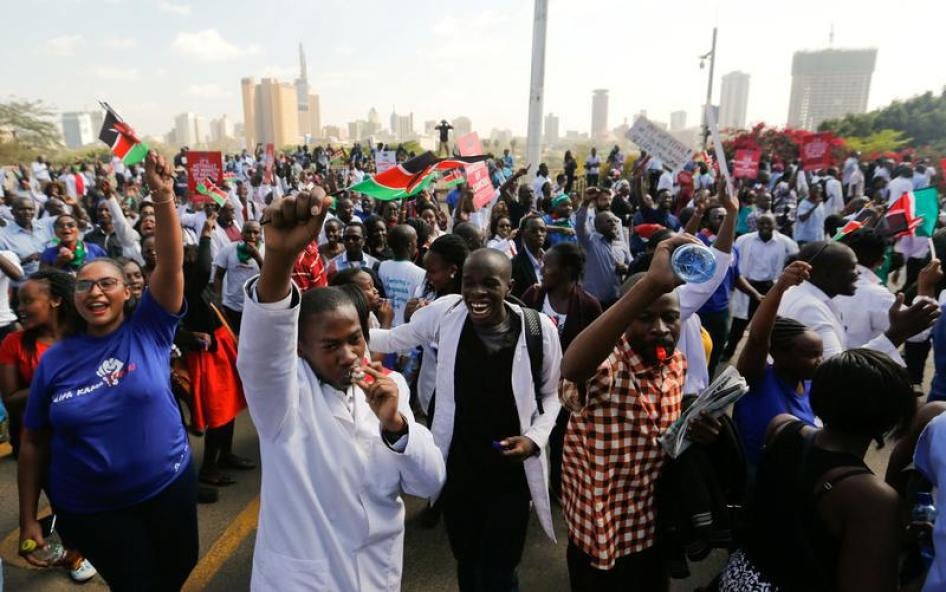“I am staring death in the face. We are dying one by one,” Rose Adhiambo told us. “My friend, a cancer patient like me, was buried today. I am stuck in this private hospital now with bills that I cannot pay.”
Rose, a 46-year-old widow living in the Kibera neighborhood of Nairobi, Kenya, was diagnosed with breast cancer in 2014 and received chemotherapy at the public state-run hospital. But two months ago, state-paid doctors went on strike demanding the implementation of an agreement between their union and the government. The agreement, signed in 2013, aimed to improve health facilities in public hospitals, including better working conditions for doctors.
Because of the strike, Rose, like many Kenyans, was forced to raise large amounts of money to pay a private hospital for her life-saving treatment. Now, although Rose has completed treatment, the hospital will not release her until she pays her bills.
And the strike continues. Talks between the government and doctors have been unsuccessful. On February 3, Kenya’s courts granted seven more days for negotiations, and have threatened to arrest doctors if there is no resolution. The clock is ticking.
Doctors allege that access to healthcare in Kenya has seriously deteriorated due to massive corruption in the sector. Evidence favors their argument: In 2016, a leaked internal audit report revealed that top officials in the Ministry of Health stole more than KES 5 Billion (almost US$50 million) during the 2015/2016 financial year. Since the strike, doctors have told countless stories on social media of awful working conditions – power going out during surgeries with patients open on the operating table; no post-exposure prophylaxis after being pricked by a needle while treating someone with HIV; watching a patient die because the local assemblyman took the ambulance to sell his tomatoes at market.
The government argues that, notwithstanding that it signed up to the 2013 bargaining agreement, it has been declared “illegal”, and doctors cannot use it to negotiate. The government hasn’t resolved the stand-off.
The impact of the strike was clear when we visited the state-funded Kenyatta National Hospital last week. There were no doctors, and dusty, abandoned stretchers littered the wards. The media has reported that many people have died because of the strike, since the alternative to public hospitals, private ones, are too expensive for most Kenyans. Some, like Rose, have ended up detained in the very hospital that was treating them, although detention for debt is a violation of international law.
“Cancer is tough, but I could pay my bills at the public hospitals,” Rose says. “Now, I depend on well-wishers, and contributions from the church, but [the private hospital] is really expensive. How will I manage? Why won’t the government end the strike?”
The government should protect Kenyans’ rights to health and life, and work with doctors to reach a solution. Otherwise, people like Rose, will suffer and even risk death as the strike persists.









